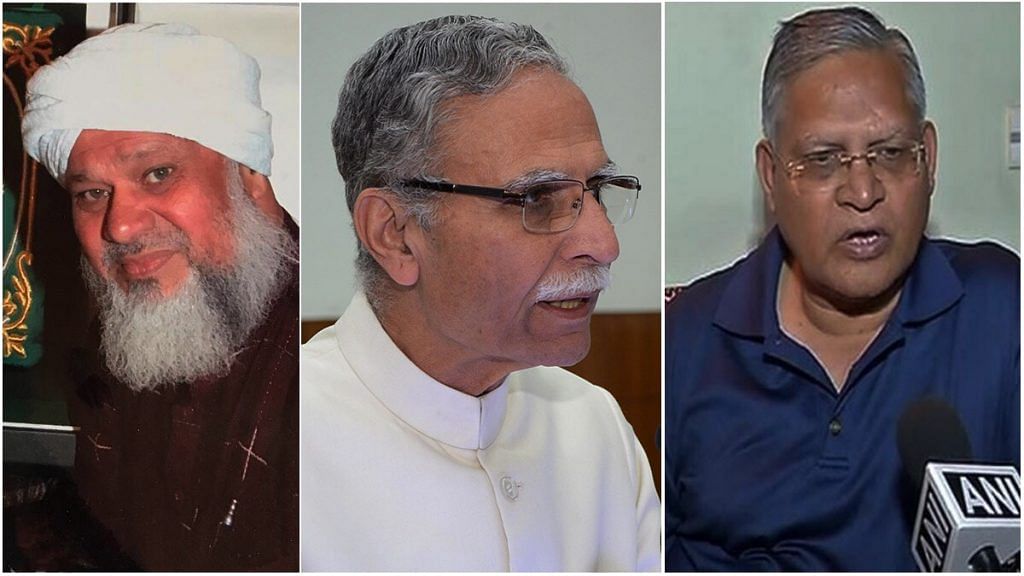New Delhi: A day after a group of Muslims conducted a press conference in support of Modi government’s revocation of Article 370 and released a statement, three signatories have said that they do not agree with the show of support.
Lt Gen. (retd) Zameer Uddin Shah, M.M. Ansari and Nawab Zafar Hameed Jung told ThePrint they disapprove of the way Article 370 was revoked and do not advocate the comments made during the release of the statement.
Ansari told ThePrint that the final letter was not even showed to him before its release.
The press conference
In a press conference Wednesday by a group called ‘India First – A group of Muslim Intellectuals’, Khwaja Iftikhar Ahmed, the convener, said the scrapping of Article 370 was passed by Parliament and cannot be opposed.
“The abrogation of Article 370 is a move taken by the Parliament of the country. The Parliament has elected representatives of the country, which makes them the people’s voice,” he said, and refuted the claim that the move was unconstitutional.
Shah, Ansari and Jung have now challenged the remarks made by Khwaja Ahmed.
“This was Khwaja Iftikhar Ahmed’s position alone. He single-handedly decided to say all those things in the press conference. I do not ascribe to what he said — not even for a second,” Jung, former chairman of the Delhi Waqf Board, told ThePrint.
Also read: 781 scientists, academics urge Modi govt to end Kashmir’s communication lockdown
While there were four people present at the press conference from the group of signatories, including Jung, it was only Ahmed who spoke.
“I am 77 years of age, I have done a lot of work in my life. I have no political ambitions and I am not looking for a seat in the Rajya sabha. Khwaja sahab can say whatever he wants to, but I don’t ascribe to his views,” Jung said.
Shah, former vice-chancellor of Aligarh Muslim University (AMU), said the primary agenda of the document was to appeal that peace in Kashmir be restored.
“It’s true that anything passed by Parliament can’t be fought, but I disapprove of the manner it was done. Khwaja Iftikhar Ahmed had said he would go strictly by the document we signed, so we believed him,” Shah told ThePrint.
Author of the book The Sarkari Mussalman: Life and travails of a soldier educationist, Shah also led the command of the army contingent deployed in Gujarat during the 2002 riots.
Also read: How doctors in Kashmir are dealing with lockdown — with anti-anxiety pills & generosity
Document wasn’t shared before releasing
Jung and Shah said they disapproved of the statements made by Ahmed during the press briefing but Ansari, former interlocutor on Jammu and Kashmir, said the letter was not shared with him before its release and he was also not informed about the press conference.
“What we had agreed on was that the process of abrogation was very unilateral and undemocratic given how it didn’t take the consent of Kashmiris. But now that the Supreme Court is looking into the petitions challenging the abrogation, at least the government should restore communication in Kashmir. This is the spirit of the letter that we had decided on,” said Ansari.
While the letter does not mention these points, it does say that the curbs and restrictions are “causing immense hardship to the people” and calls for normalcy in Kashmir.
However, the letter also states that the, “Prime Minister’s call in a public rally to embrace all Kashmiris in order to make a naya Kashmir — a new Kashmir — is a statement of substance”.
“I was shown a draft, in response to which I gave a bunch of suggestions. But I was told not all suggestions can be incorporated from all the 39 people. The matter was discussed about 10 days ago, but there wasn’t even a meeting of all the signatories,” said Ansari.
Ahmed, however, refuted this claim and said, “All 39 had read the statement and all of them were on board.”
Also read: By challenging status quo on Kashmir, India risks hyphenating itself with Pakistan again
Regarding the remarks made in the press conference, he said he was speaking as the representative of the group.
“I was representing the group, and when you represent a group, nothing is spoken in a personal capacity. When you come together as a group, you say things as a group,” he told ThePrint.
Ahmed added that it was decided prior to the press conference itself that he will be leading it, but there were no restrictions and the other members could respond to questions.
